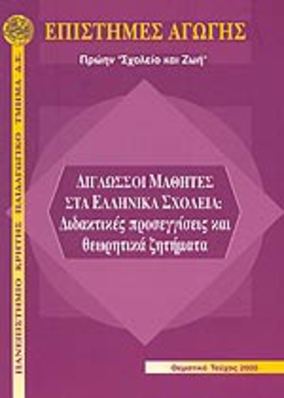Εκπαιδευτικές αρχές και διδακτική μεθοδολογία για άτομα με διάχυτες αναπτυξιακές διαταραχές (ΔΑΔ) αυτισμό, ο ρόλος του εκπαιδευτικού
Part of : Επιστήμες Αγωγής ; No.1, 2010, pages 121-143
Issue:
Pages:
121-143
Author:
Abstract:
People with autism or other pervasive developmental disorders have the right to participate in education system as a particular recognized educational category since law 2817/2000 of Ministry of Education and Religious Affaires. Educational programs implemented at school are flexible and individual. Aim of education for those children concerned development of academic skills as well as social, communication, independent living, play and other skills. Simultaneously, many different therapeutic approaches have been proposed by different specialists. These therapeutic approaches reflect different philosophical backgrounds as well as the beliefs of their era. Not one approach has led to the “cure” of children with pervasive developmental disorders. All therapeutic approaches have been criticized for their methodology and their results (Cohen, 2006). In a contemporary social environment, the role of education, school and teacher has been influenced by scientific, technological, economic and political change resulting in amendment and reform.The aim of this article is the investigation and presentation of the education provided to those with pervasive developmental disorders: the curriculum, therapeutic programmes, the contemporary role of teacher from a critical stance and general teaching principles.
Subject:
Subject (LC):
Keywords:
διάχυτες αναπτυξιακές διαταραχές - αυτισμός, θεραπευτικά προγράμματα, ο εκπαιδευτικός, αναλυτικό πρόγραμμα σπουδών ειδικής αγωγής, διδακτικές στρατηγικές
Notes:
Περιέχει βιβλιογραφία




